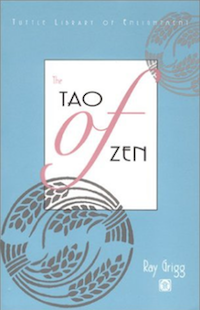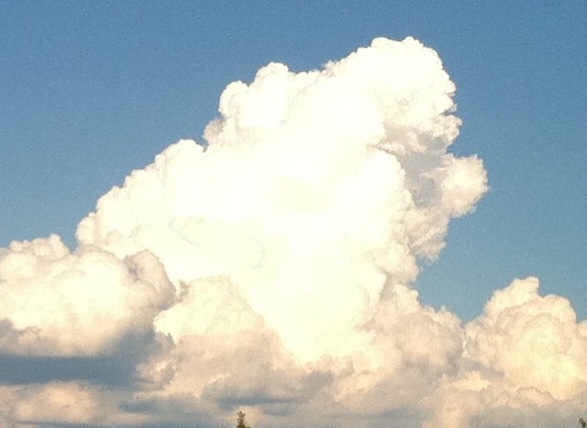“This very large thing (the net) provides a new way of thinking (perfect search, total recall, planetary scope) and a new mind for an old species. It is the Beginning. […] At its core 7 billion humans, soon to be 9 billion, are quickly cloaking themselves with an always-on layer of connectivity that comes close to directly linking their brains to each other. […] By the year 2025 every person alive — that is, 100 percent of the planet’s inhabitants — will have access to this platform via some almost-free device. Everyone will be on it. Or in it. Or, simply, everyone will be it.”
— The Inevitable by Kevin Kelly
“All information will come in by super-realistic television and other electronic devices as yet in the planning stage or barely imagined. In one way this will enable the individual to extend himself anywhere without moving his body— even to distant regions of space. But this will be a new kind of individual— an individual with a colossal external nervous system reaching out and out into infinity. And this electronic nervous system will be so interconnected that all individuals plugged in will tend to share the same thoughts, the same feelings, and the same experiences. […] If all this ends with the human race leaving no more trace of itself in the universe than a system of electronic patterns, why should that trouble us? For that is exactly what we are now!”
— The Book: On the Taboo Against Knowing Who You Are by Alan Watts
“Humanity is developing a sort of global eyesight as millions of video cameras on satellites, desktops, and street corners are connected to the Internet. In your lifetime it will be possible to see almost anything on the planet from any computer. And society’s intelligence is merging over the Internet, creating, in effect, a global mind that can do vastly more than any individual mind. Eventually everything that is known by one person will be available to all. A decision can be made by the collective mind of humanity and instantly communicated to the body of society.”
— God’s Debris by Scott Adams
In all of my reading about Taoism, Buddhism and other eastern mystical traditions, one theme repeats over and over. That there is no permanent, on-going self. That feeling of “me” and “I” is an illusion. And the source of all suffering. Clinging and resisting is mixed in (I want things to be the way I want things to be) but I won’t try to tackle that here.
There is nothing more difficult for me to comprehend than the idea that my feeling of “me-ness” is just an illusion. Not real. I’ve been struggling with this for many years. And I’ve grabbed on to various metaphors in an effort to see (or feel) how this could possibly be.
For the last week or so I’ve been thinking of myself as a computer connected to a vast network of other computers. Over the years, every part of the computer has been replaced. The monitor, the hard drive, the keyboard, all the internal parts… all have been replaced. In no sense is the computer the same computer that was there in the beginning.
In this tortured analogy, the computer operating system is my brain(mind?). But from the very beginning, the OS was being continuously updated. This is where the analogy gets wobbly because who or what is using the computer? I don’t have a clue so I’m gonna say the computer OS is using itself and, in the process, creating an imaginary sense of self that believes it is operating the computer. Why is it doing this? No clue. How is it doing this? No clue.
But every day the OS changes and evolves as it processes ever more information. Emails, text messages, videos, songs, news articles, and all the rest. Every new bit makes a tiny change in the OS so it is never the same from one moment to the next. From the computer’s perspective, everything is humming along fine. An endless flow of new and interesting stuff.
But let’s assume we can only keep the hardware and software running for 80 years. Manufacturer’s planned obsolescence or something. The network knows this and when one computer goes “offline,” another one comes on, running the latest OS. The network is always becoming. It only exists as an entity in relation to the network.
But the imagined self — the ghost in my machine — is horrified by this prospect. It doesn’t know (can’t know?) it’s not real. It’s non-existence is horrifying and unimaginable (take a moment to appreciate the irony). I took a moment to watch the final scene of 2010 (A Space Odyssey) in which Dr. Chandra explains to HAL that it will be destroyed.
So, no self… happy ending (No ending, actually). Self… The End. Oblivion. Easy choice. But it is only from my God-like, Creator of the Analogy perspective that any of this can be considered. The only way I can keep my head from exploding (one of the most difficult parts to replace) is to imagine the “always Becoming OS” can generate this view, this understanding and in so doing, recognize the illusory nature of the self. Enlightenment.
Additional reading:
Neuroscience backs up the Buddhist belief that “the self” isn’t constant, but ever-changing
You’re a completely different person at 14 and 77



 In
In 
